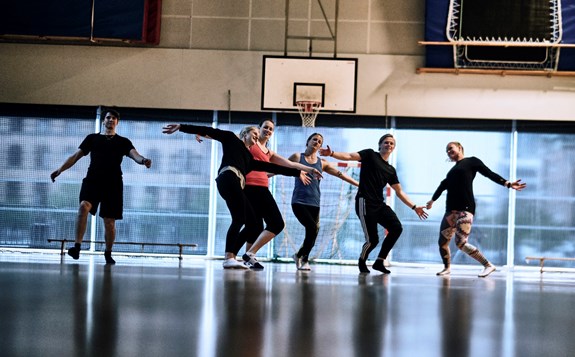New study reveals the pioneer who paved the way for female skiers

Skier, and international driving force for women's conditions in sport: Inga Löwdin played a pivotal role in enabling women to compete in cross-country skiing in the Olympics and World Championships from 1952 onwards.
Her achievements are now being highlighted in a research project.
“Many people know about her, but very little has been written about her. We wanted to understand what lay behind her success,” says Daniel Svensson, associate professor of sports science at Malmö University.
Through national archives, researchers have gained access to extensive material such as letters, meeting minutes and notes.
Inga Löwdin (1917–2008) began as a skier and coach but soon became a key figure in the International Ski Federation.
An important factor in her success was that she combined practical experience with academic education. She was an elite athlete, but also well-read and spoke seven languages, which enabled her to work internationally in a way that was unusual for women in sport during much of the 20th century.
Networked internationally
Another of her strengths was her ability to build strong networks, both with both male and female colleagues.
“She didn't call herself a feminist, but in her correspondence we see that she was aware of her outsider position in a male-dominated world. Her frustration is clear – but so is her determination,” says Svensson.
Longer races were considered dangerous for women
Löwdin used research to argue against the notion that women cannot cover the same distances as men. She pushed for more races, tougher courses, and better resources for female skiers.
There was considerable resistance, as it was considered dangerous for women to compete in longer races. However, Inga Löwdin drew on scientific evidence. She demonstrated that it was possible to change the sport from within – through knowledge, networking, and strategic work.
Although work on equal opportunities in skiing has been ongoing for a long time, it was not until the 2022–2023 season that women were allowed to compete in the 50 km distance in the World Cup.
“There is still much work to be done on gender equality in sport. We hope that the results of our study, using the example of Inga Löwdin, will inspire more people to work for more inclusive and democratic sport,” adds Svensson.
Additional information
The research project Transforming Gender Boundaries in Sports Organisations: Women in FIS through the Example of Inga Löwdin is funded by the Swedish Research Council for Sport Science. An article based on the study will be published in the journal Sport in Society later this year,
The research project was conducted together with Anna Åberg, technology historian at Chalmers University of Technology.



